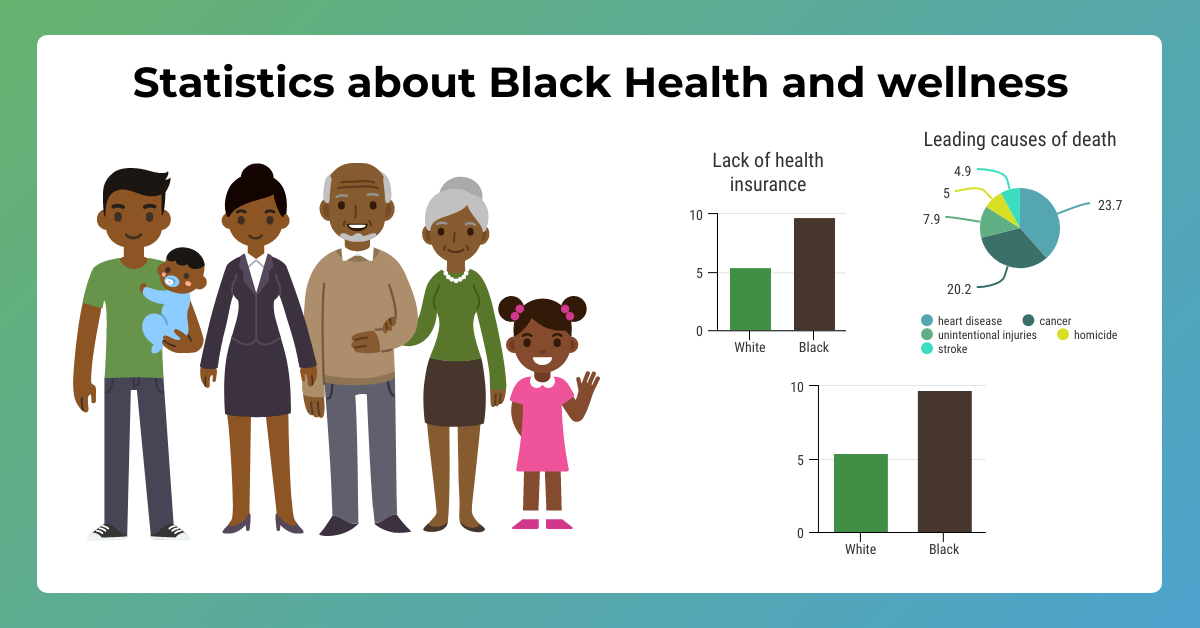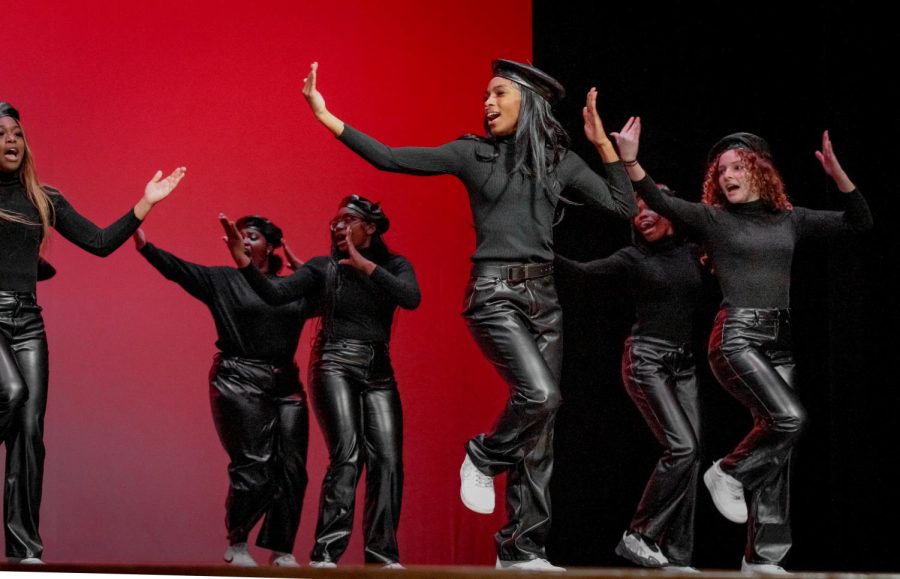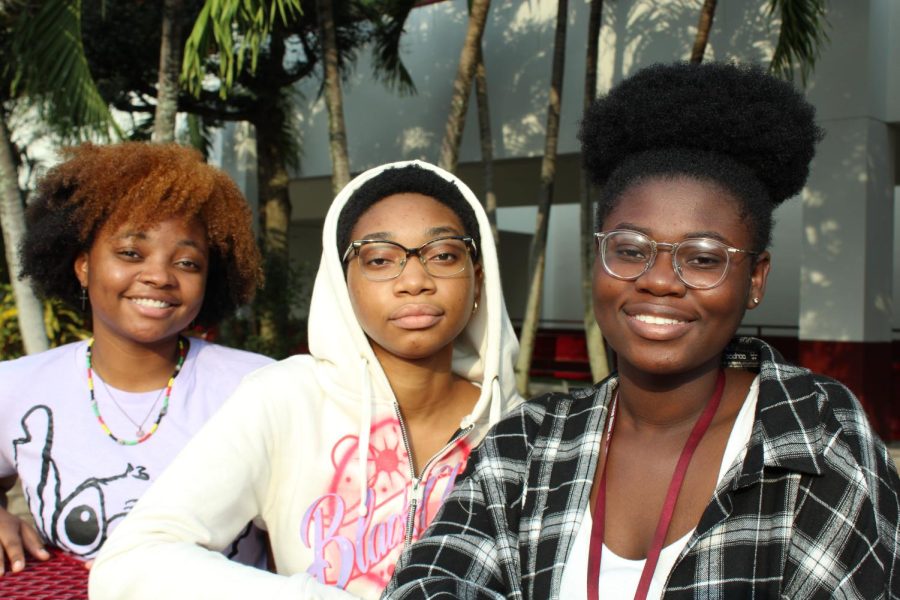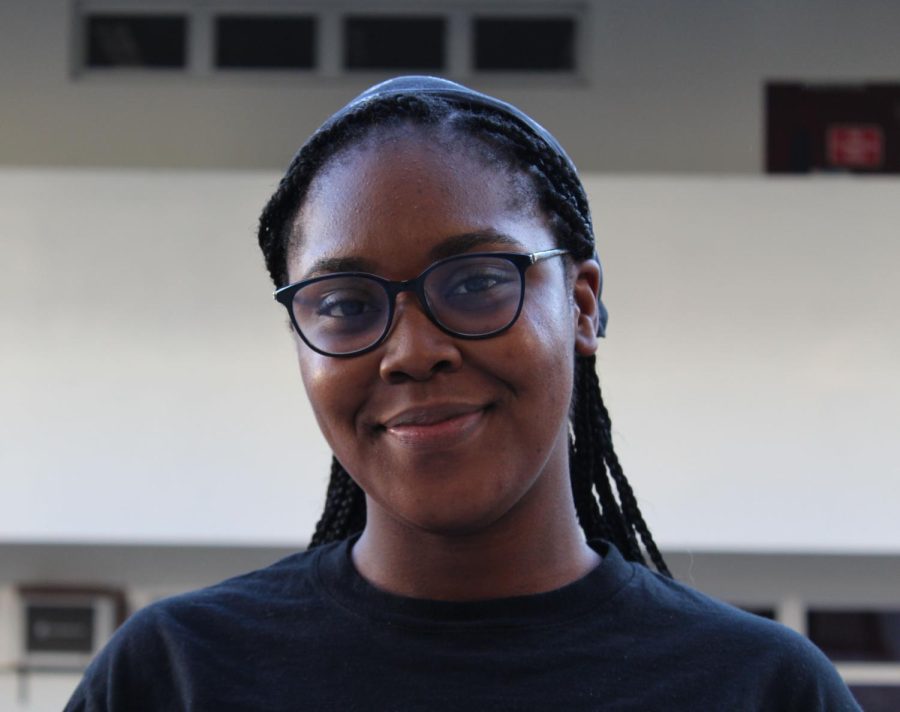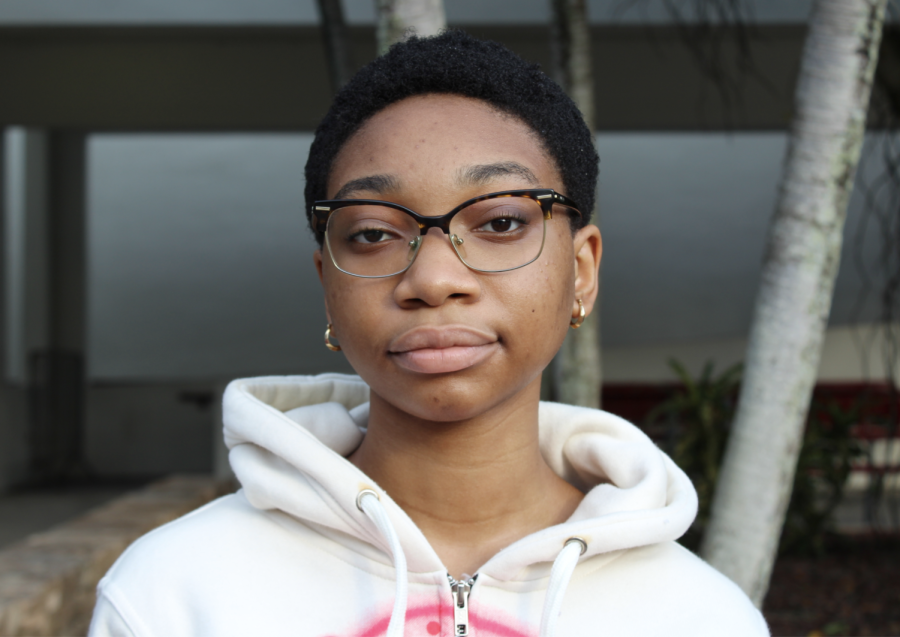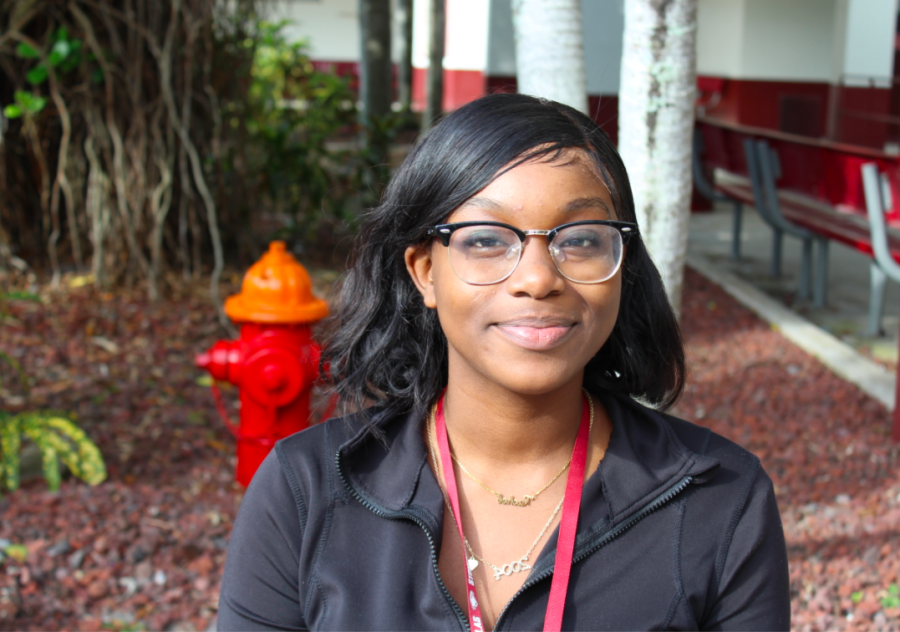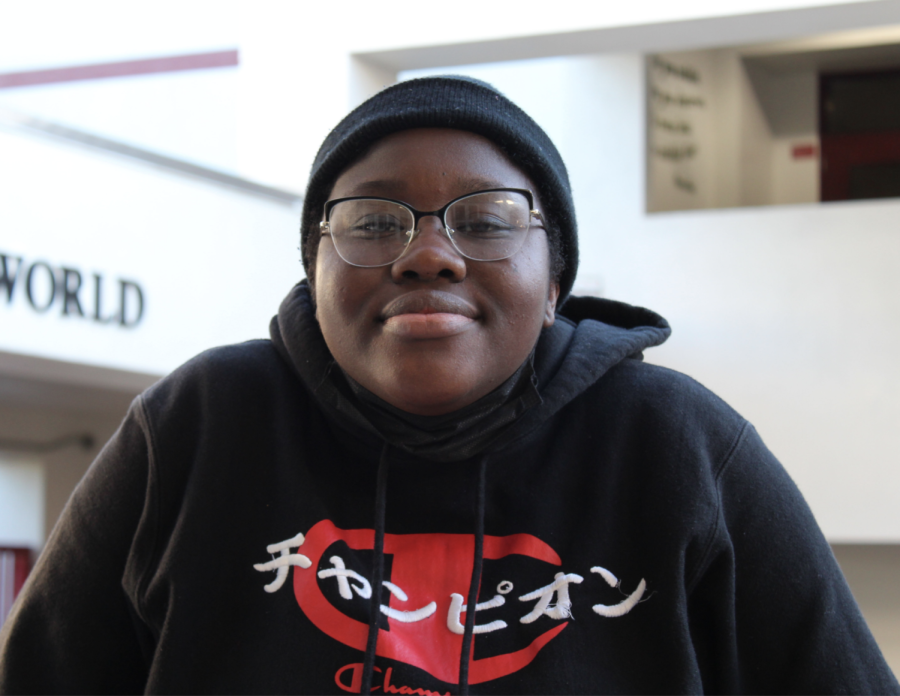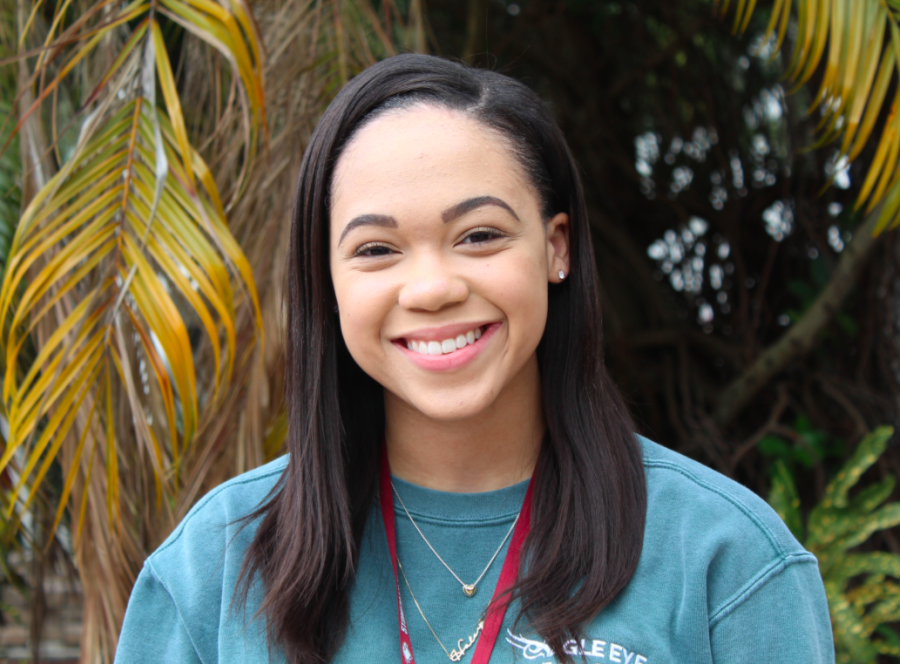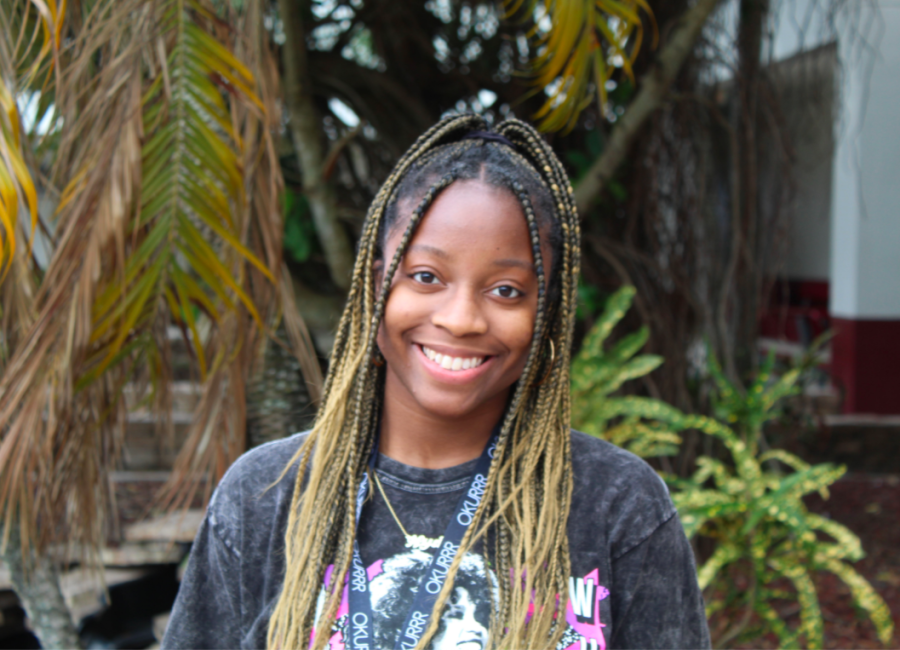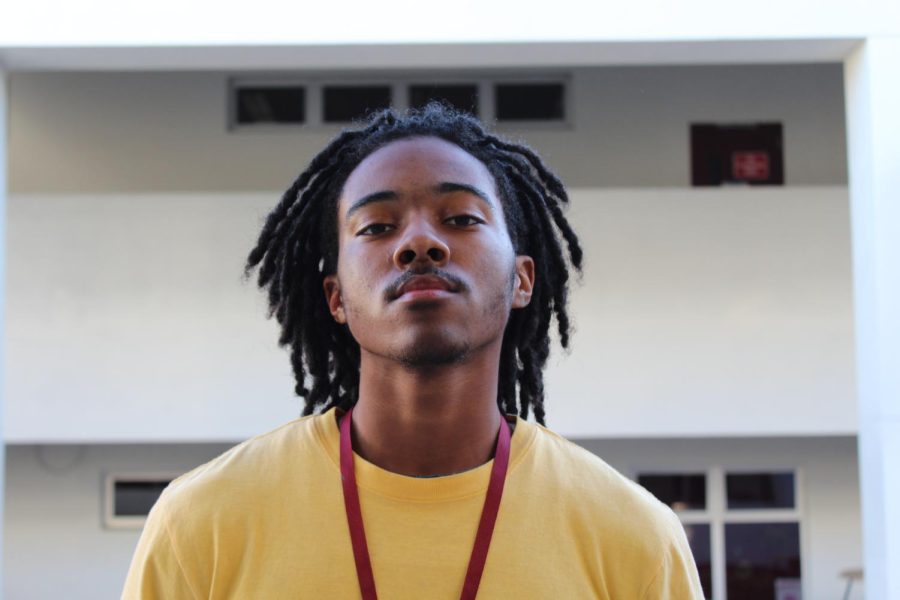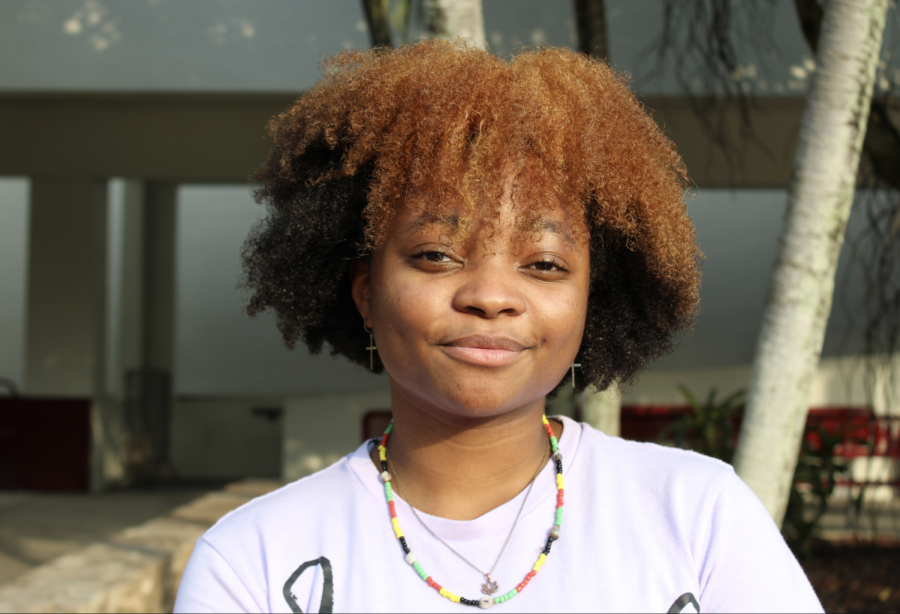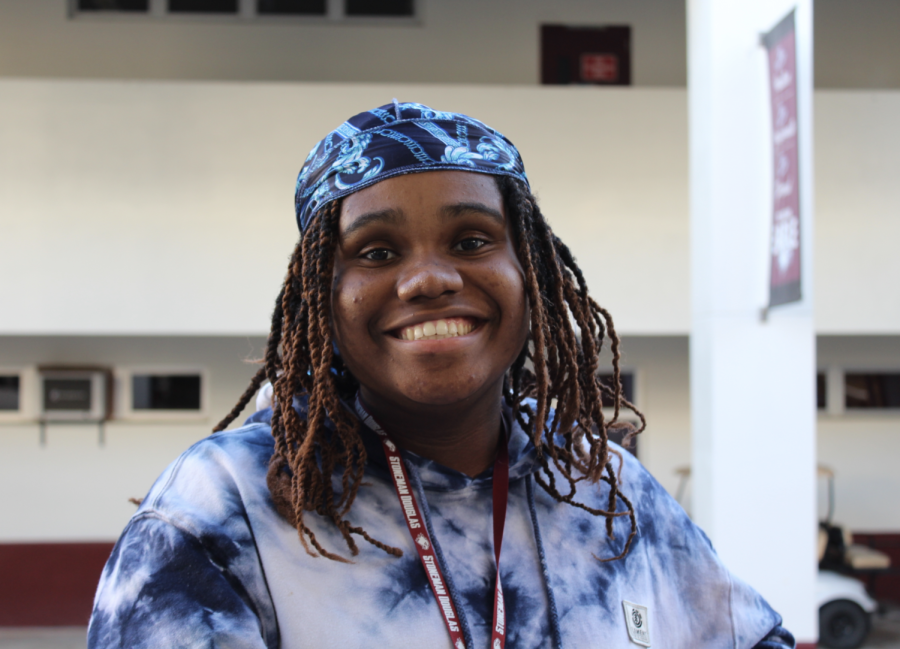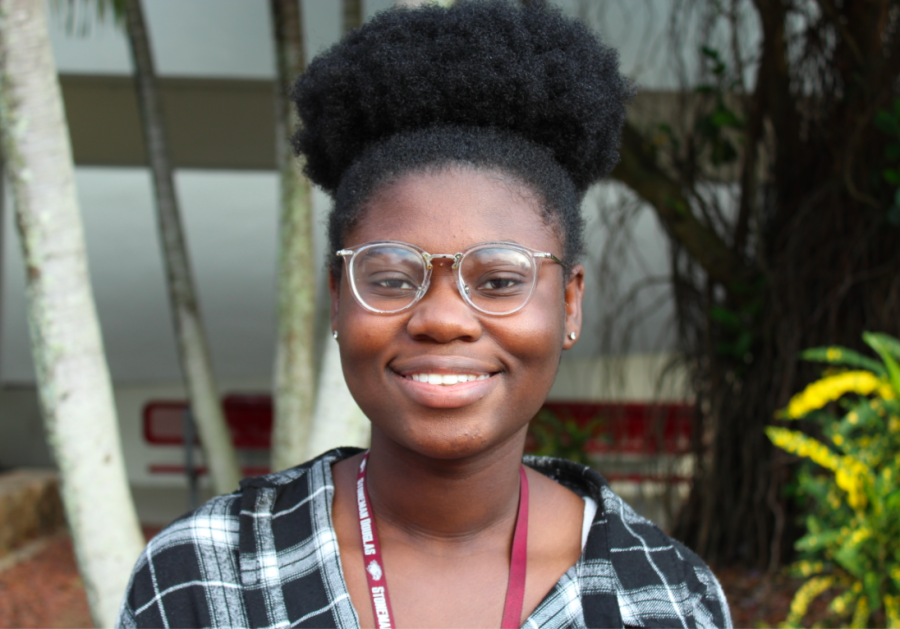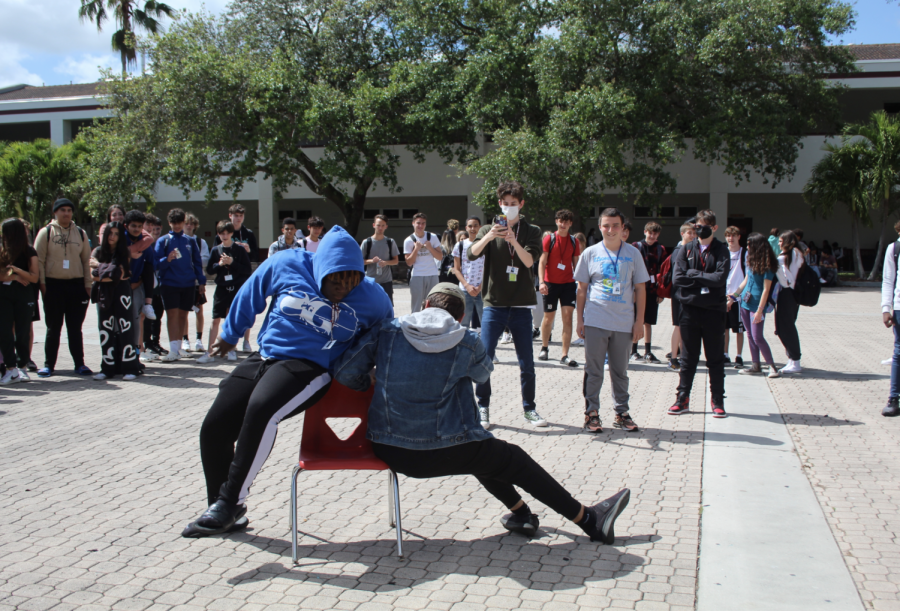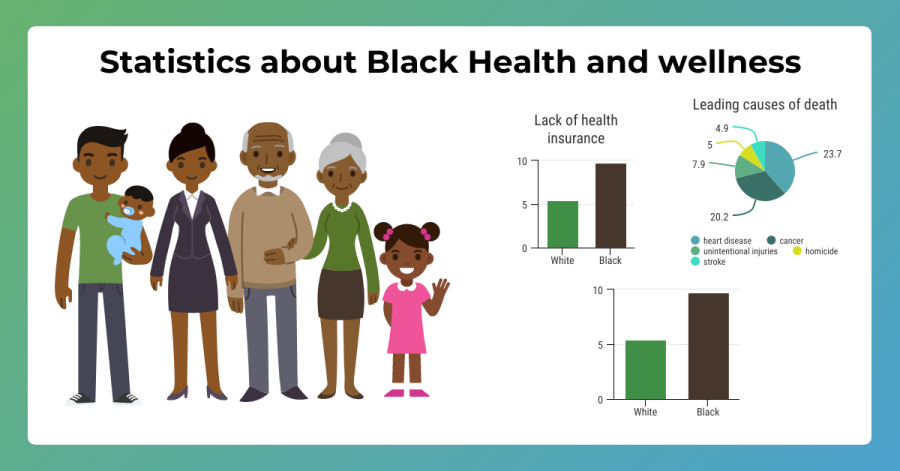Your donation will support the student journalists of Marjory Stoneman Douglas High School. Your contribution will allow us to purchase equipment and cover our annual website hosting costs.
MSD commemorates 2022 Black History Month theme ‘Black Health and Wellness’
February 28, 2022
Each year, Black History Month has a designated theme; for 2022, the theme is “Black Health and Wellness.” The goal of this year’s theme is to shed light on health disparities Black Americans often face and to give credit to the many Black scholars and pioneers of Western medicine.
Black History Month originally derived from what was originally known as Negro History Week. This celebratory week coincides with the birthday of Frederick Douglass and began in 1926. Historian Carter G. Woodson and Minister Jess E. Moorland are often credited with the creation of Negro History Week, due to them being the founders of the Association for the Study of Negro Life and History.
Since former President Gerald Ford officially recognized February as Black History Month in 1976, every following president has also done the same.
On Jan. 31, President Joe Biden issued a proclamation on National Black History Month. Within his proclamation, Biden references the nation’s founding principles of equality. In addition, Biden asserts his own and Vice President Kamala Harris’ commitment to advancing equity, racial justice and opportunity for Black Americans as the nation continues to strive to realize America’s founding promise.
Florida First Lady Casey DeSantis is hosting a variety of Black History Month contests for educators and students. This year’s theme is “Celebrating African-American Contributions to Florida’s History.”’ One student will be chosen for grades 4-5, one middle school student and one in high school. The winner of each level will receive a 4-year Florida College Plan scholarship through the Florida Prepaid College Foundation.
Younger students in grades K-3 have the opportunity to partake in the art contest. Students may submit a 2D piece in relation to the theme. Two winners will be selected. As for Marjory Stoneman Douglas High School, the Black Student Union is heading the BHM festivities in the seventh annual Black History Month show entitled “Rise Up: A Looking Glass Into Black Culture.”
The Black Student Union hosts a Black History Month showcase for the seventh year in a row
The Ladies of Destiny step team puts on an amazing performance towards the end of the show.
On Friday, Feb. 3 the Black Student Union hosted the annual Black History Month showcase for the seventh year in a row. This being the first official year the club has been considered a club, it was the BSU’s first year fully hosting and being in charge of the event.
The BSU had a BHM committee that planned the event, headed by senior Donfred Gerton and junior Charlene Noel. The Drama Department also helped with the event by lending their stage tech crew to help run the special effects of the show, like they do for the drama productions they put on throughout the year.
“We are incredibly grateful for our sponsors and those who stepped up to help us this year,” Gerton said. “We had a BHM committee, we had writers [who] contributed to writing the script, we had our choreographers, our show runners, so it definitely took a village.”
Entitled “Rise up: A Looking Glass Into Black Culture,” the show was filled with dancing, spoken word, videos, singing and music that highlights Black culture, women and struggles. The show honored the special month. Additionally, there was a performance for students during school hours and one for the general public at night.
Students had the chance to attend the free morning performance of Act 1 during 1st period and Act 2 during 2nd period, taking place from 7:40 a.m. to 10:48 a.m.
At 7:00 p.m. there was a night performance for students, parents, faculty and anyone else in the community. Tickets were $10 for adults and $8 for students. Drama sold $1 snacks before the show and during the 15-minute intermission.
Gerton, sophomore Syrus Davis and sophomore Holly LaForest hosted the entire night, introducing each act, giving background, cracking jokes and interacting with the audience.
“I am the host and I am introducing and talking about some of the dances,” Davis said. “I love that I am talking to everyone about what they are about to see and it is important that people learn the facts about Black culture and [their] countries.”
The show opened with a contemporary dance performed by junior Amanda Amri and senior Sage Saunders to the song “Stand Up” by Cynthia Erivo. This song was originally written for the movie “Harriet,” about the life abolitionist and well-known Underground Railroad figure Harriet Tubman.
Throughout the MSD BHM show, there were several group dance performances for different countries with major Black populations; these included the Bahamas, Jamaica, Brazil, Africa, Trinidad and Haiti. Songs were from all different genres, like Bachata and Reggae, and dances, like Hip-Hop, that are deep in Black culture.
The Ladies of Destiny Step Team also performed since Step was created by Black fraternities and sororities in America and were composed of a majority Black student group.
Two groups of students had a “dance battle” for the R&B girl groups: Destiny’s Child and TLC. Each group took turns performing to their well-known songs, from “All The Women Independent,” “No Scrubs” and “Say My Name.”
Junior Nadia Marchena sang the solo “Halo” by Beyonce and junior Niaomi Hudson sang “A Change is Gonna Come” by Sam Cooke, a song that symbolizes power during the 1960s Civil Rights Movement.
Junior Matthew Mckie performed two piano solos during the show, one during each act. As he played, there was a slideshow behind him of influential Black music artists, such as Ray Charles, Jackson 5, Luther Vandross, Jay Z, Montell Jordan, Alicia Keys, etc.
Another slideshow, “The Ones We Lost,” played during Act 1. This compiled all the influential and famous Black artists, activists, sports players and more who have passed away in the last two years; the highlighted icons included Katherine Johnson, one of the first Black women to work at NASA, famous actor Chadwick Boseman, author Bell Hooks, first Black U.S. Secretary of State Colin Powell and rappers Pop Smoke, Juice WRLD and XXXTentacion.
The show included two original spoken words and a declamation piece. In Act 1, senior Anaya Murray wrote and performed “Black Lives Matter,” a piece sharing the importance and necessity of the statement. She included her own personal experiences of learning to love herself in her skin and teaching her two brothers, who are currently six and eight, to keep their hands up when pulled over by a police officer. In addition, she shared non-personal experiences many other Black people face, like Black women being careful not to get “too loud” when speaking on topics they are passionate about, to prevent being stereotyped, or not wearing their hood when walking outside, to not be labeled as dangerous.
In Act 2, senior Layla Ali performed her original spoken word “Bonnets and Durags,” debunking the harmful stereotype that such hair coverings are affiliated with gangs or violence; whereas in actuality, they are used to keep Black people’s hair beautiful and protected. A group of performers joined her on the stage at the end of the piece wearing their bonnets and durags in solidarity.
“I did a poem on bonnets and durags to raise awareness about the stereotypes people have on them and why they are incorrect,” Ali said. “Through society and school settings, a lot of time we aren’t allowed to wear such things because they are assumed to be gang affiliated or just ‘not presentable,’ which is only because it was made for Black people and by Black people, so it was taught to be ghetto.”
The president of BSU, junior Noldine Belizaire, and members of BSU, junior Regine Accius, senior Rachel Georges and sophomore Ne’rya Vassell, performed the piece “Rise Up” about the Black Lives Matter Movement. They reflected on their past Black brothers, sisters and those in between who fought for their rights and equality, like Marsha P. Johnson. They discussed how we must all “rise up” against the stereotypes and discriminations of races, gender, sexuality and more.
“It was our brothers, like John Lewis, who reminded us it’s okay to get into good trouble when needed,” Vassell said during the piece.
The show ended with dances by the Ladies of Destiny step team and a Black women tribute video, which included multiple Black females from MSD expressing why they are proud to be Black women. The video also included dozens of famous Black role models giving words of inspiration about how vital and beautiful Black women are in society.
Meet the officers
Juniors Neketa Dixon Jenkins, Nesya Small, and Charlene Noel are a few of the dedicated Black Student Union officers at Marjory Stoneman Douglas High School. The inclusivity of the Black Student Union shares a diverse, safe space for all to join.
In the midst of a global pandemic and the 2020 Black Lives Matter summer protest, the Marjory Stoneman Douglas High School Black Student Union was created by a group of black students hoping to create a safe haven for fellow black students at MSD. The BSU’s founders, Noldine Belizaire, Jada Lemy, Nesya Small, and Roveschney Veillard, created the club after much frustration towards the killing of George Floyd. The MSD Black Student Union hopes to teach and share Black culture with others in school and outside of school in the Coral Springs and Parkland community.
While BSU is currently limited in the number of activities they can host due to COVID-19, the club as a whole hopes to host school wide events in the future to educate fellow students and the MSD community. In addition to school wide events, BSU also hopes to collaborate with other clubs to unite MSD.
With a total of nine officers, BSU is composed of students from grades 9-12 and meets in room 911 every other Tuesday at 2:50 p.m.
Noldine Belizaire
Junior Noldine Belizaire serves as president of the Black Student Union. She devotes her time to ensure that every aspect of the club runs smoothly and is passionate in executing the club’s mission.
Noldine Belizaire is the president of the BSU and is excited to spend the year shaping Marjory Stoneman Douglas High School into a better, more tolerable, version of itself. As well as being the president of the BSU, Belizaire is also a part of Mentoring Tomorrow’s Leaders, Theatre, Speech & Debate and the Ruth Bader Ginsburg club.
“I became an officer for the Black Student Union because I had many ideas that I wanted to spread throughout the school,” Belizaire said. “I knew I could not fulfill those goals on my own, so I joined BSU to create a difference with an amazing group of people with the same goals in mind.”
The MSD BSU hopes to not only ensure Black students are treated equally on campus and within the community, but to also celebrate the beauty and nuances of Black culture. For this purpose exactly, Belizaire has expressed the idea of continuing the Black History Month show. She hopes that through the show and through the work of the other BSU projects that the school can take a positive direction in terms of racial issues.
“The Black Student Unions mission through these various projects is to bring all sorts of people together no matter what racial background they come from. Each officer has a common goal to make sure that black students at MSD feel welcome to speak on their issues and connect to their culture as much as possible,” Belizaire said.
Belizaire and her colleagues at the BSU will face many difficult questions. Some of those questions will inevitably concern the importance of their work and whether or not their organization is necessary in the first place.
“Knowing that we go to a predominantly white school, it is understandable that a lot of non-black students are not aware of our struggles. We already don’t learn enough about black role models in the classrooms and when we do learn about Black people, it’s usually not something so positive. Having a Black Student Union on a school campus, gives non-black students the chance to educate themselves on Black history that they’ve haven’t been educated on. And the presence of this club also gives black students a chance to feel safe and not have to cover up themselves,” Belizaire said.
The work of Belizaire and her colleagues at the BSU is vitally important to the well being of so many at MSD. The officers, according to Belizaire, have a common goal in making sure that black voices are heard, and they have determined that the groundwork for this goal is first creating a safe space.
“I think that having a Black Student Union at Marjory Stoneman Douglas [High School] has definitely reminded- not just black students but, all students of color that there is definitely a safe space that you can go to where a group of students understand the racial biases and the discrimination we have to face on a daily basis,” Belizaire said.
The hope that Belizaire and her colleagues at the BSU holds for MSD is a hope that is shared among all the minority groups here at our school. Hopefully the hard work that these individuals are doing will pave the way to a fairer and better MSD.
Nesya Small
Junior Nesya Small is Vice President of the Black Student Union. Small has strong aspirations and plans to accomplish a lot of new goals this year, not only for the club but for all Black students at Marjory Stoneman Douglas High School. At MSD, she hopes to be a part of the change she feels BSU will make during her years of being an officer. To her, the goal of BSU is to provide a safe and secure space for MSD’s Black students; Small hopes to achieve this by the end of the school year.
“In the BSU, many can express themselves without fear of judgment. Additionally, we want to educate people on the Black community, our experiences, and our culture,” Small said.
One of the goals she wished to accomplish this year was having a successful Black History Month show, which turned out to be a great event for the club and school. The show played a big role in helping to explain the importance of Black history and the strides people of color have made in the past and are still making today.
“I feel that BSU is helping to make MSD a more inclusive and racially sensitive environment, through things like our discussions with members, who can educate others through what they learned or got a deeper understanding of,” Small said.
BSU has become not only an important program at MSD, but also for Small. She dedicated a lot of time to creating BSU just to make her fellow Black students feel safe and comfortable. Being in a school with not many Black students, Small has been a part of a program dedicated to creating a safe space to share culture, ideas, and more of a minority in the school.
“In most of my classes I’m usually one of five or six Black students, at best. Sometimes, I’ve been the only one. Being in an environment where there aren’t a lot of people that look like you can be hard, so that’s what was in mind when BSU was started,” Small said. “With there being a union dedicated to Black people, our experiences, and our feelings, it serves as both a safe space, and a reminder that we’re not as alone as we might feel.”
As well as being a member of the BSU she also is a member of Mentoring Tomorrow’s Leaders and National Honor Society. Small is a highly active member at MSD also being a part of the school’s track and field team on top of all her club activities.
Small has played a major role in the BSU, inspiring Black students to join and become more comfortable in their own school.
Rachel Georges
Senior Rachel Georges acquires the role of secretary of the Black Student Union. She records the minutes of all meetings and maintains the club’s records.
This year, BSU has returned to create a safe space for people of color and to ensure that these same individuals are heard. But another intention of the BSU is to educate and spreading awareness. Senior and BSU secretary, Rachel Georges, intends to focus heavily on this exact aspect of the club, hoping to provide representation and education.
“BSU’s mission through our many upcoming activities is to promote and educate Black culture and history, as well as provide representation for us as minorities,” Georges said. “This year, as my last year, I hope that we can educate our peers on ongoing or past situations within the African-American community, as well as organize fun activities/field trips.”
Georges approach to promoting black history and culture includes the creation of an inclusive learning space. Georges feels that anyone can learn about black culture regardless of race or background.
“BSU is very inviting to everyone regardless of race or cultural background, we aim to educate many who may not know much, as well as host activities to promote various backgrounds, making this club very much inclusive and open,” Georges said.
Georges is also very adamant about MSD’s need for a BSU in the first place. Stating that the school’s majority white population results in minority issues being largely overshadowed.
“MSD needs BSU, because the demographics of this school shows that more than half of the student population is white, resulting in other minorities, specifically African-Americans, receiving little to no representation. Whether that be activities, shows, or even when a serious situation needs to be brought up,” Georges said.
Georges joined the BSU because she enjoys leadership and being as much as involved as she can. Hopefully with her focus on inclusion, representation, and education, she and her other officers at the BSU can lead Douglas into a brighter, happier, and safer future.
Joyce Celestin
Joyce Celestin is standing up for education and diversity by joining MSD’s Black Student Union. She along with the rest of her colleagues have big dreams of creating a better MSD through the cultivation of racial tolerance and issues. They plan on taking on their job of creating and managing a safe space for all students of color here at MSD in stride.
“BSU stands for Black Student Union and that may sound like it’s for just one group of people, but I can assure you it’s not. MSD needs a BSU because we need a space where our students can become a union where we could share our stories, learn more about social injustices of the world and continue to fight for social equality,” Celestin said. “It starts small and having a BSU in a PWI is a big step in the process of social acceptance. A BSU is a symbol that everyone is in this together, that’s why I believe MSD needs one.”
Celestin places a particular importance on education and community. She says creating a strong community that represents students of color is imperative to the club’s success.
“The main goal of our project focuses on the fun to distract the students of the messed up world they live in but it’s mainly to show that our students of color are here, they are present, they are seen, and they are appreciated,” Celestin said. “What we are trying to do is strengthen and build what we have, and yes I am saying this a lot but if we can’t build a bond within our own community then we can’t educate the people outside of the community.”
Celestin has a personal agenda in joining the BSU, stating that she hopes to strengthen the Black community from within. She also expresses a goal in improvement and education for herself, stating that she wishes to learn so that she can better inform future participants in the BSU.
“I wanted to become an officer because I wanted to help improve some of the racial issues within the school and build a community for the black students to help them feel welcome and comfortable in a PWI (predominately white institution). Not only that I want equality for all students of color, and I want to make sure that every student knows that we have people speaking for them, not only that I want to improve myself as well,” Celestin said. “Listening into meetings and learning about everybody with discussions, educating myself more on the Black community so I could learn more about my ancestor’s history and inform others in the future.”
The meetings that are held in the BSU are, according to Celestine, sensitive. They focus on racial issues that affect the Black community and the students of color at MSD. Celestine commends the club for taking the issues head on.
“Every other Tuesday we have meetings on different topics within the black community. Everybody is free to join and we welcome everybody so they can see our viewpoints of society and educate themselves on some racially sensitive issues,” Celestin said. “BSU members do not bypass any inappropriate racial comments that are made within the school and out of school and we talk about discriminatory issues with admin frequently.”
The BSU’s goal in creating a safe space has a valuable ally in Joyce Celestin. Education of black history and culture is, according to Celestin, the BSU’s true goal. The club will grow and help create a better MSD.
Haley Jackson
Senior Haley Jackson serves as co-publicity officer of the Black Student Union. She intends to spread the club’s overall message and help the club gain a larger influence throughout the community.
Senior Haley Jackson, co-publicity officer for the Black Student Union (BSU) and section editor for the news, feature, and politics & activism section of the Eagle Eye, is seeking to use her skills to help better the newly revived BSU.
“I wanted to become an officer for BSU because I felt I could use my skills as Section editor to help amplify the club’s overall voice,” Jackson said. “I wanted to serve BSU in any way possible as well as serve to the best of my ability.”
Jackson, using the skills that she has cultivated from her work in the Eagle Eye, intends to create an environment that is more educated and racially aware. She acknowledges that change takes time, but also adds that progress only occurs with effort.
“As a whole, BSU hopes to help create a more racially aware and accepting school campus and community,” Jackson said. “While improvement does not occur overnight, it does take a conscious effort from everyone to ensure progress occurs. BSU plans to continue partnerships with other affinity clubs at MSD and at other Broward schools to host conversations and events to promote racial equality.”
Jackson shares the position of publicity officer with fellow Eagle Eye member and BSU officer Nya Owusu-Afriyie. The two have worked together before and intend to use their respective talents to aid the BSU in their goals.
“I feel very hopeful about serving as co-publicity officer with Nya Owusu-Afriyie. Since Nya is one of the photo editors for The Eagle Eye, we have worked together before. With my main focus being writing and Nya’s being photography, I feel that our partnership ensures a successful public appearance,” Jackson said.
Along with creating a safe environment for people of color and promoting black culture and history, this year BSU has plans to expand its reach. Jackson states that the club plans to reach out to other BSU chapters for the purposes of larger events.
“I hope BSU can use our platform to gain a broader reach throughout the county. BSU plans to host school-wide events and additional events with other Broward schools BSU chapters,” Jackson said.
Ultimately, BSU’s goal is to create a safe and racially aware environment that everyone can learn from. They hope to succeed in doing this this year by planning events and just generally getting the school involved in the promotion of a safe and healthy environment.
“By hosting discussions with Principal Kefford and other affinity groups, BSU is able to discuss possible and current racial issues. BSU’s partnership with administration helps to create a united approach to seeking racial acceptance on the MSD campus,” Jackson said. “I think every school should have a BSU. BSU serves as a safe haven for both Black and non-black students. The board’s goal is to always create an inclusive and honest environment where students can feel safe bringing forth both problems, events and ideas.”
Nya Owusu-Afriyie
Senior Nya Owusu-Afriyie act as co-publicity officer of the Black Student Union. She promotes the club and spreads awareness of the club’s goals.
“One picture is worth 1,000 words,” Fred R. Barnard once said.
Senior Nya Owusu-Afriyie was voted for by BSU members to serve as one of the Co-Publicity officers for the 2021-2022 school year. While Owusu-Afriyie also serves as one of the photo editors for the MSD school newspaper, Owusu-Afriyie was motivated by other reasons in addition to her photography skills to seek a leadership role in the BSU.
“I wanted to become an officer for BSU because I, along with the rest of the members of the club, noticed the lack of black representation at Douglas. Whether it be walking around or directly in the classroom. I wanted to be a part of the influence that hopes to change that,” Owusu-Afriyie said.
Serving as Co-Publicity officer and Photo editor for the The Eagle Eye, the MSD student-ran newspaper, Owusu-Afriyie seeks to make the BSU a more integral part of the community. With the help of her colleagues, she seeks to collaborate with various groups to create a safe space for people of color at Douglas and in the larger Parkland and Coral Springs community.
“It is my hope that for this year, BSU can be a well known club not only at Douglas but in the community as well. I hope that the things we are planning this year such as fundraising, the Black History Month show, possible collaborations and many other great things (to be announced) can spread awareness to other kids of color and help them understand that they have a safe space within their community,” Owusu-Afriyie said
The BSU has many community projects planned for this year, all of which are intended to promote inclusion through work and the celebration of equality. Owusu-Afriyie emphasises that the only qualifier to participating in the projects that the BSU has planned is a passion for their mission and what the BSU represents.
“BSU’s goal through the projects this year is to come together as a community through volunteering, spreading awareness, etc. Your skin tone does not matter, you just have to be passionate about our mission, passionate about who we are and what we do,” Owusu-Afriyie said.
Owusu-Afriyie is sharing the role of Publicity officer with Haley Jackson, another editor from The Eagle Eye. Owusu-Afriyie states that she is excited and happy to collaborate with someone, further stating that she is looking forward to creating projects with Jackson.
“I feel great about sharing my role with my co-officer, I actually feel relieved that I am not the only one doing the job. It’s good to have someone to voice ideas off of and you can do the same for them. I have gotten the pleasure to meet my co-officer and I must say, having a conversation with her is mind blowing. I am very excited about the projects we will be doing,” Owusu-Afriyie said.
Owusu-Afriyie shares the goal of promoting racial sensitivity at MSD and in the larger community, but she has also expressed an interest in furthering the education of Black History in classrooms. She says that the school must do more to teach the student body on this subject, stating that the week in February that teachers are informed that they must teach an aspect of Black History is not sufficient.
“I feel BSU is helping to make MSD a more inclusive and racially sensitive environment because we are making people aware that the actions they choose to take are sometimes discriminatory and offensive. We are trying to change things both inside and outside of the classroom. The one week in February where teachers are “told” to teach us something related to Black History Month is not enough. It’s the one week of school I actually am eager to learn and I’m only taught for three hours out of the school year. That’s not right,” Owusu-Afriyie said.
Owusu-Afriyie and the rest of the BSU have many ideas on how to promote both the club and equality in MSD and the larger community. However, they all agree that the BSU is integral for supporting diversity in a largely white area. It will be both interesting and exciting to see the BSU support their ideals and create a safer space for people of color individuals.
Matthew Mckie
Junior Matthew Mckie serves as assistant officer of the Black Student Union. He carries out duties pertaining to the club and plays a role in making a change within the community.
Junior Matthew Mckie is part of the BSU as assistant officer. He along, with his colleagues, are looking to promote the club and its message of safety and acceptance.
“I want [BSU] to grow and become large, so that we can become a staple in the history of this school to ensure the efforts we make are never swept under the rug,” Mckie says.
The efforts that Mckie mentions are those concerning the treatment of non-white, especially black, students in Marjory Stoneman Douglas High School. Mckie feels the Parkland and Coral Springs community are in desperate need of a BSU.
“Although the diversity within our school is beautiful, it still feels spread out, you know? Most of the time, I’ll be lucky if I can identify more than 3 or 4 other black kids in my classes,” Mckie said. “That said, I find it imperative and great that we can have a safe space together where we can come and join our minds and feel comfort in knowing that there are people who experience similar things to us and look like us, which also breeds a sense of cultural pride to a degree.”
The reason Mckie feels drawn to the BSU is because of the club’s honest nature. According to Mckie, serious issues are given their time, real problems are discussed, and a proper, productive discussion is creative. Mckie stated that club President Noldine Belizaire invited him into the club, but he stays for the sincere and effective rhetoric.
“They keep it real there. They address serious topics that are pushed to the side for the sake of preserving what good standings we have, but hiding problems doesn’t solve them,” Mckie said. “Going over things such as whoopings, how homosexuality is viewed, how the education system hides black history are crucial to our betterment, for if we don’t learn of it, who’s going to pass it on to our posterity? Who is going to carry the stories of those who labored and lost, those who fought for us to be where we are? It is our duty and it is incumbent upon us to share the stories and topics, be them triumphant or tragic.”
Mckie intends to promote the BSU and invoke change in the community. Along with his colleagues, Mckie wants to create a safer, more accepting space for people of color.
“I want to be a part of the decision making in the betterment and the elevation of this club/community,” Mckie said. “I see that we have some innovative ideas to change things within and outside of our community, and I want to play a vital role in these changes happening.”
These vital changes include addressing issues within the student, and even the staff, body. Mckie, along with fellow BSU officers, intend to bring these problems to light and rectify those they can.
“We’re addressing issues within the lives of students and even staff that need to be brought to light, and I find that quite innovative and commendable,” Mckie said.
The BSU intends to make changes to the community, making where we live and work more accepting and safe.
Neketa Dixon Jenkins
Throughout this school year, the Marjory Stoneman Douglas High School BSU has strived to hold events celebrating Black culture, such as the Black History Month Show held Feb. 3 that sought to educate students and staff on Black issues and to promote wellness, positivity and progress. Hoping to help further this goal is Neketa Dixon Jenkins, a co-assisting officer that has her own dreams for the club.
“Despite already accomplishing so much, my true hope is that BSU remains a familiar name at this school. At the start of the year many students weren’t aware there was a Black Student Union at MSD,” Jenkins said. “I would hear ‘oh what is that’ or ‘are you with that club, the BCU’ and I would be like ‘no it’s the BSU.’ I hope that by the end of the year a good handful of students can say they gained something from us, they are more educated, and they enjoyed their time.”
Jenkins’ affinity to the club is personal. She describes feeling alone at MSD and the difficulty she found in finding other students that looked like her. Jenkins’s struggles are unfortunately not exclusive;ccording to data gathered by the Eagle Eye only about 12.8% of the student body here at Marjory Stoneman High School is Black, making it hard for students like Jenkins to find comradery.
“I feel BSU is helping to make MSD a more inclusive and racially sensitive environment, because we are making people aware that the actions they choose to take are sometimes discriminatory and offensive. We are trying to change things both inside and outside of the classroom,” Jenkins said. “We go to and let us face [MSD] for what it is, a [predominantly white institution] and students are racist and many other things to say the least. Instead of lashing out at these students, our members come to these meetings, beating the stereotypes and sharing their experiences with it; it makes them feel less alone.”
Neketa’s shares the BSU’s overall goal of using the platform to educate MSD as a whole on issues that plague the communities of people of color. She adamantly insists that people do not need to Black in order to help the BSU.
“The BSU’s goal through the projects this year is to come together as a community through volunteering, spreading awareness, etc. Your skin tone does not matter, you just have to be passionate about our mission, passionate about who we are and what we do,” Jenkins said.
Jenkins also insists that the club is absolutely necessary for MSD in particular; with the school being both predominantly white and common occurrences of racism, both intentional and unintentional.
“I know for a fact MSD needs a BSU because Douglas is a predominantly white institution. There is a dire need for a club like this at this school because whether we choose to acknowledge it or not, this school is full of racism both intentional and unintentional,” Jenkins said. “The whole idea behind this club is to educate students and faculty who don’t understand the struggles people of color go through and also to provide a safe space for students to come in and share stories of the difficulties they face because of their skin tone.”
Neketa’s goal for education and the BSU’s message of tolerance and justice pair beautifully and will work together to create a safer, and better MSD.
Donfred Gerton
Senior Donfred Gerton is a highly active Black Student Union officer at Marjory Stoneman Douglas High School. Gerton wishes to help the union succeed in any way possible, and hopes for it to grow larger and more popular as his work as an officer proceeds.
“What made me want to become a BSU officer was really just my excitement that there even was a BSU on campus to begin with. I wanted this club to succeed before I even joined, with or without me,” Gerton said. “I wanted to make sure I could do everything in my power to make sure that it became successful.”
Some goals he has, a lot similar to those of other officers, is he wishes to schedule and raise money for a Historically Black Colleges and Universities (HBCU) field trip, a performance with the Black History Month committee at the annual worldfest and an abundance of other activities for the BSU members and other MSD students to take part in.
To Gerton, BSU’s goal/mission is to make a statement to not just MSD but other schools as well through the variety of projects they take part in. He believes that BSU’s core purpose is to educate and uplift other members within the community of Black culture, history, and more.
“From celebrating our culture, to doing service for our community and those less fortunate, to speaking and debating about a variety of topics and issues plaguing our community,” Gerton said. “We want all members and non members to view the BSU as a safe and inclusive space where they can learn, congregate, and have the space to freely be themselves. That’s been the goal since day one. That’ll always be the goal.”
Gerton feels as though BSU is helping to make MSD more racially inclusive and a more sensitive environment.
“If students at this school aren’t aware about the racial discrepancies and disparities that exist within this school, then nothing is ever going to change. Through BSU we have members of all colors and nationalities learning about not only the black experience at this school, but also the black experiences off campus, which I personally believe is the most important,” Gerton said.
BSU has become a large program at MSD and Gerton believed it’s needed because the black population, aside from Native American, is the lowest in the school. BSU has helped the fewer number of Black Students find a safe space and Gerton has become a huge part of that step.
“For so long MSD was seen as the school that all the white kids go to, establishing a BSU here not only connects the black student body with the BSU’s of neighboring schools, but it connects the people of color as a whole at this school,” Gerton said.
Gerton is the event coordinator for the Black History Month committee, which is a program intertwined with BSU. Gerton has had the chance to begin working with a Co-Black History Month Show Committee officer, Charlene Noel. He and Charlene had an immediate connection and began working together smoothly, in perfect sync putting on a very successful Black History Month showcase on Feb. 4 entitled “Rise Up: A Looking Glass Into Black Culture.”
He is a member of a few other clubs like being a senior officer for Mentoring Tomorrow’s Leaders and he’s also a senior officer for MSD’s politics club.
In Gerton’s spare time he mainly enjoys writing and composing music. He also enjoys spending his time working at the youth center in Coral Springs.
Charlene Noel
Junior Charlene Noel, co-event coordinator of the Black Student Union, works day in and out to put the Black History Month Show together. She organizes the exciting events for the Black Student Union.
The Black Student Union has filled out their officer positions and are prepared to make MSD a safer, more inclusive school. Co-event coordinator Charlene Noel in particular is prepared to tackle racism at MSD directly.
“BSU is not afraid to step up their game when addressing these serious issues of racism we have at our school,” Noel said. “We are constantly planning ways to work with our administrators and staff to deal with these problems associated with the school and we will not stop until we are heard and until we succeed.”
BSU’s goal for spreading tolerance and understanding lines up perfectly with Noel’s hope that a safe space can be created for students of color. It is common for people of minority groups to feel excluded from the general population. Noel hopes to rectify this by creating a space in which all POC are safe and heard.
“I hope BSU can truly provide a safe place for all the POC that feel like they need to hide and who feel like they are alone,” says Noel. “I’m hoping we will accomplish the goal of bringing out the hate towards the POC and eventually being able to walk the halls without feeling targeted because of their skin color.”
Noel joined BSU when she heard that the club was starting in person discussions and meetings again. She has always had the urge to join a number of extracurriculars, but never found any that interested her until the BSU. Luckily, it seems that she has found a place to share her ideas and contribute to the growth of the community.
“Every since the beginning of High school I wanted to involve myself in a lot of extracurricular activities and eventually being able to lead one, however all the clubs that were offered I never really saw myself talking interest in being a leader but when I heard BSU was starting again I saw that as an opportunity to involve myself in the a community within a PWI (predominantly white institution),” Noel said.
Noel feels the area in and around the school is one that lacks a lot of diversity, making the BSU an incredibly important source of honest and reliable information on the topic of minority struggles.
“As we are located in an area that does not have much diversity I think it is important for MSD to have a BSU because it is one of the few clubs I know of that can relate the struggles of POC. We do not sugarcoat information and we face reality together as one,” Noel said.
The BSU is back and “better than ever” according to Noel. The club intends to create a better and more tolerant MSD while providing a safe space for all POC individuals.
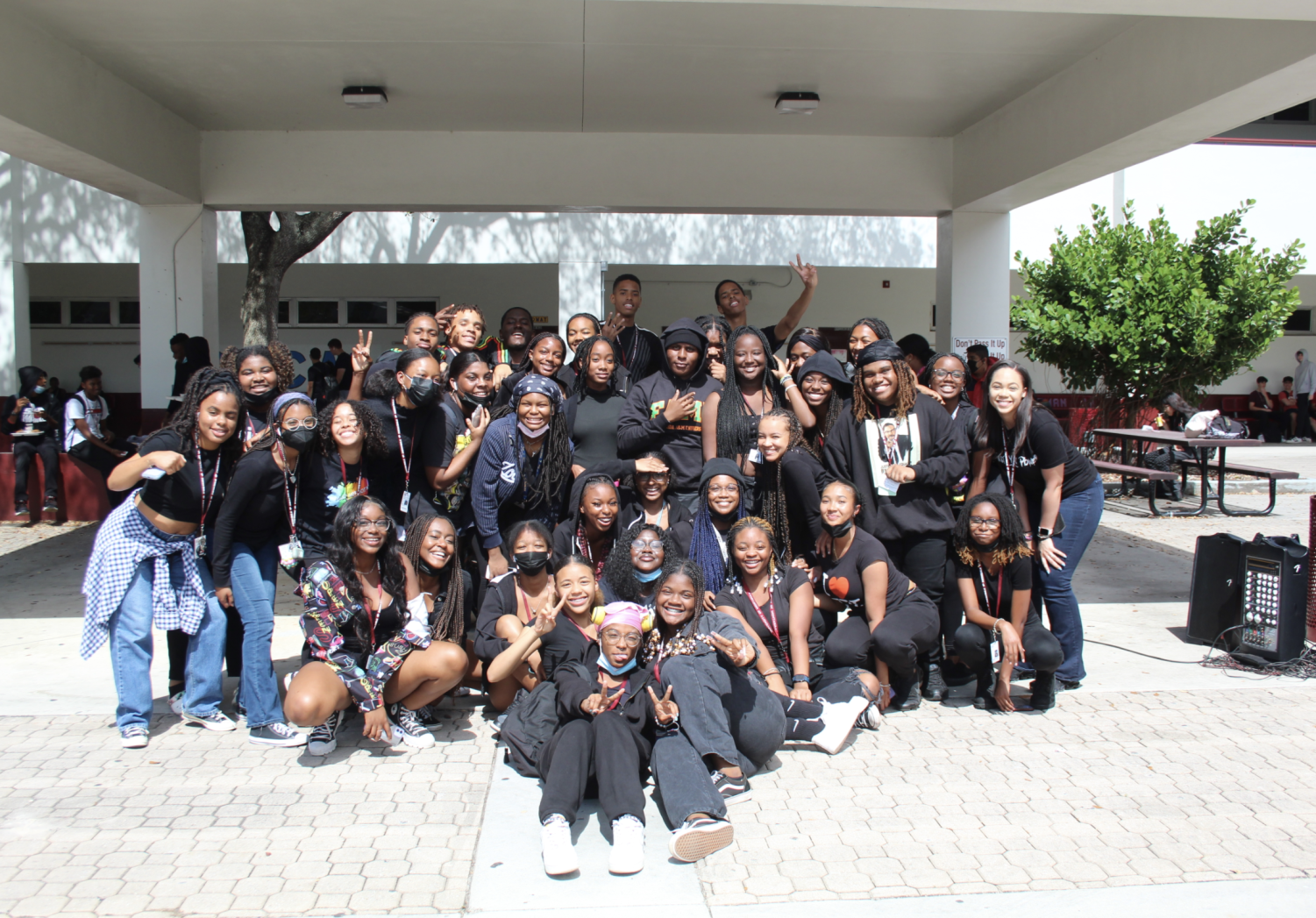
BSU takes a group photo on their final day of spirit week.
MSD’s Black Student Union held their first ever Black History Month spirit week
Marjory Stoneman Douglas High School has held many spirit weeks throughout the school years ranging from ones held by the Student Government Association for Homecoming, Winter Spirit Week, Red Ribbon Week, and many others. This year, for the first time, the Black Student Union hosted their own spirit week to end off Black History Month.
The Black Student Union was created by students Noldine Belizaire, Roveschney Veliardm, Jada Lemy, and Nesya Small. The club was reestablished during the summer of 2020 after the violent killings of multiple Black individuals. BSU was established to create a safe haven for Black students at predominantly white institutions.
After BSU hosted the BHM Show entitled “Rise Up: A Looking Glass Into Black Culture on Feb. 3,” the officers
were thinking of ways to continue BHM with more exciting activities leading to a school-wide spirit week.
The spirit week was composed of four different days that were from Tuesday, Feb. 22 to Friday, Feb. 25. The days that were presented were, “Rep. Your HBCU (Historically Black College and University) Day,” “Rep. Your Cultural Heritage Day,” “Y2K vs. 90s” and “Blackout Day.”
“It was truly a beautiful and exciting experience to bring all demographics together to uplift and celebrate Black culture,” President of BSU and junior Noldine Belizaire said.
“Rep. Your HBCU Day” students wore historically black college and university colors and apparel. “Rep. Your Cultural Heritage Day” students wore their cultural apparel to school. “Y2K vs. 90s” students dressed up in their 2000’s or 90’s attire. Lastly, “Blackout Day” students dressed in all black as a tribute to victims of racial violence.
“I participated in the blackout day by wearing all black, as a tribute to victims of racial violence as I almost lost my cousin to police brutality,” freshman Addison Zajkowski said.
BSU officers and the BHM committee, members/officers of BSU who were responsible for all BHM activities,went through many efforts to put together this spirit week. Many of them missed several classes this week to ensure playlists and courtyard activities were set up and working correctly.
“We chose to throw a spirit week because Black students already experience a lack of representation and unity at times at school,” Belizaire said. “Hosting the spirit week really brought our community closer.”
This was the first time BSU has held this spirit week and a lot of time and thought went into the preparation of it. After the great success of this week, the Black Student Union plans to
host a spirit week yearly.
Multiple Black students at MSD plan on pursuing jobs in the medical field
Statistics about black health and wellness suggest unfair treatment toward African-Americans according to the Center for Disease Control.
While always a need in society, the medical field has become cornerstone since the start of the COVID-19 pandemic. With the 2022 Black History Month theme being “Black Health and Wellness,” Marjory Stoneman Douglas High School has a variety of Black females who are planning to join the medical field. Whether it be as a travel nurse or therapist, these students are putting in the work towards a profession in medicine.
According to the Florida government’s physician workforce annual report, only about 5.4% of all members in the medical field are Black American, with the other 94.6% being a mixture of Hispanic Americans, White, Native American, Asian and more. There has also been a steady increase of minority races working in the medical field since 2008. These students are gradually raising that percent, creating a more diverse medical workplace.
Playful Practitioner
Senior Rachel Georges is planning to join the medical field as a pediatric nurse practitioner. She hopes to reach this goal by attending Nova Southeastern University.
“I hope to inspire other young black women to defeat the stereotypes and go beyond what we are set to do,” Georges said. “It is important because firstly it’s a safe place, it’s an ‘okay’ to know that they will be treated well and not discriminated against, and also an inspiration for others to see people just like them succeeding.”
Georges always refers back to her inspiration, retired neurosurgeon and politician Benjamin Carson.
“I watched a movie about him as a black young man that struggled in school. He was discriminated against because of his skin, yet succeeded to be an amazing neurosurgeon,” Georges said. “He proved to me that despite who you are or where you came from, you can always succeed.”
Georges understands that even in today’s world, people of color are still discriminated against. This understanding could lead to many challenges while Georges works towards her degree; she is fearful because she believes since she is as a minority, she could be rejected not only by colleges but denied many job opportunities. However, she plans on doing everything she can to be successful and to earn her degree as a pediatric nurse practitioner.
“Being a minority and succeeding in the medical field can be challenging, because one, we are often discouraged to no succeed beyond the ‘norm’ and two, discrimination in the medical field is still very much prevalent, making it much harder to even land a job/get into med school,” Georges said.
Mental Health Motivator
Therapists have become a very important part of many people’s lives as mental health is becoming increasingly recognized in society. Senior Samia King plans to major in psychology and eventually become a therapist. Her dreams are to graduate with a pre-med degree and begin helping those in need immediately after.
“I want to be a clinical therapist because I’d like to start with talking to my patients first, since I don’t really agree with the theology of drugging patients and forcing them to comply,” King said. “I feel like if they want to help themselves they would, you don’t have to use force. You have to work in methods and then you can give your patients meds for reasons and also to an extent.”
King, like Georges, is also aware of the struggles she may face earning her medical degree as a minority. She feels as though her skin color could be a major setback. However, as long as everything from college to the medical workplace is kept professional, she feels that she can do great things as a therapist.
“I think that every Black person in the United States has struggles, but in the medical field and as a Black woman trying to reach the top above white people, you will have obstacles,” King said. “They will put so much doubt in you to not succeed, they will try so hard to sabotage you to have a setback. However, those are the struggles I have to overcome because those people are not going to help me reach where I want to go.”
Pediatric Precision
It is also important to have Black doctors for children to make sure their care is prioritized. Senior Kendall Slack hopes to one day become a pediatric surgeon. With her mother being a pharmacist, as well as her participation in a three-year medical program in middle school, Slack has known for a while that she wanted to pursue a career in the medical field, more specifically as a pediatric surgeon.
“I think it’s important for Black people to see representation in the medical field so that they can relate to someone and feel safe. This allows them to actually get help and not avoid medical attention,” Slack said. “As a Black professional in the medical field, I hope to diminish at least some stereotypes and give help to anybody who needs it, no questions asked.
While Slack is currently unsure where she wants to attend to obtain her Bachelor’s degree, she hopes to attend the Leonard M. Miller School of Medicine at the University of Miami, which is currently ranked within the Top 50 medical schools in the United States.
With only 2% of pediatric surgeons in the country being Black, Slack is hoping to bring change to her field.
“I believe that Black mental and physical [health] isn’t taken as seriously as other races. When I become a doctor, I am going to make sure to do my part and make sure to take it seriously,” Slack said.
Athletic Aide
Similar to Slack, senior Leah DuBreuze also has a family member who is a pharmacist, her grandfather. DuBreuze’s grandfather has served as a great point of contact for her family, which led her to want to be able to do the same thing for athletes in her family.
“It is important that in Black health and wellness that we take care of ourselves. There has always been a stigma about going to the doctor and getting treatment,” DuBreuze said. “The knowledge of how our bodies function and how it needs to be taken care of is important to a better way of life.”
A dancer since the age of five and a player on the MSD women’s varsity basketball team since her sophomore year, DuBreuze credits her motivation to pursue a career in sports medicine to her athletic ability.
“Being an athlete, I want to work in sports medicine, either in physical therapy or kinesiology. These fields specifically work with people who are recovering from an injury to restore strength range of motion,” DuBreuze said.
While DuBreuze is interested in attending a few schools, going to the University of Miami is one of her biggest aspirations. By joining the medical field, DuBreuze hopes to serve as an inspiration for younger generations that they can be whatever they want to be.
While it is unknown each of these students’ journey to their goal, their efforts are certain to make for a better society. With the help of those in the medical field, society would not be the same. In addition to the importance of doctors, representation within the medical field allows younger generations to see that they too can achieve great heights.
